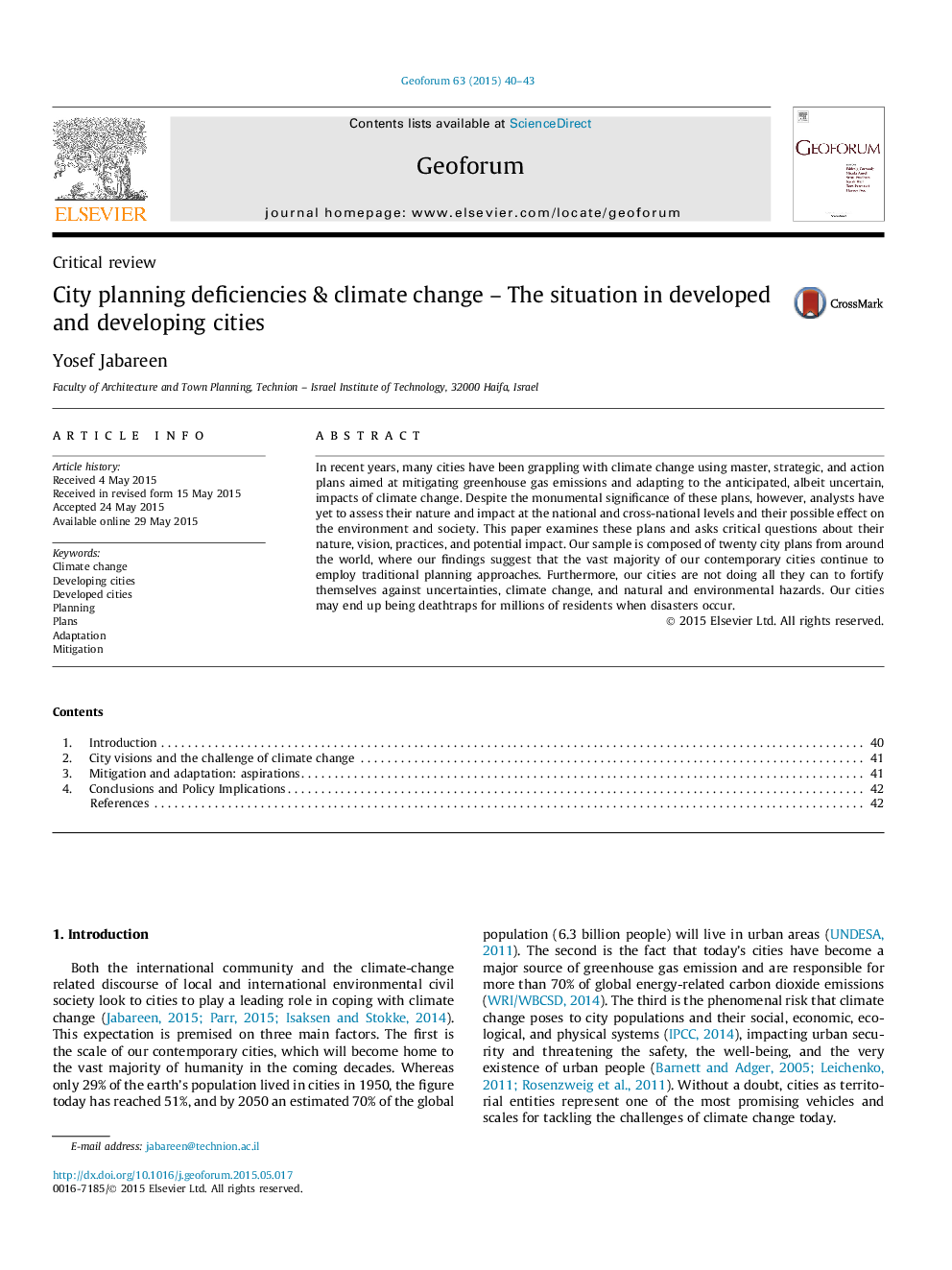| Article ID | Journal | Published Year | Pages | File Type |
|---|---|---|---|---|
| 5073658 | Geoforum | 2015 | 4 Pages |
â¢Climate change and its uncertainties challenge conventional urban planning.â¢The majority of cities continue to employ traditional planning approaches.â¢Developed and developing cities are not doing all they can to fortify themselves.â¢Cities may end up being deathtraps for millions of residents when disasters occur.
In recent years, many cities have been grappling with climate change using master, strategic, and action plans aimed at mitigating greenhouse gas emissions and adapting to the anticipated, albeit uncertain, impacts of climate change. Despite the monumental significance of these plans, however, analysts have yet to assess their nature and impact at the national and cross-national levels and their possible effect on the environment and society. This paper examines these plans and asks critical questions about their nature, vision, practices, and potential impact. Our sample is composed of twenty city plans from around the world, where our findings suggest that the vast majority of our contemporary cities continue to employ traditional planning approaches. Furthermore, our cities are not doing all they can to fortify themselves against uncertainties, climate change, and natural and environmental hazards. Our cities may end up being deathtraps for millions of residents when disasters occur.
